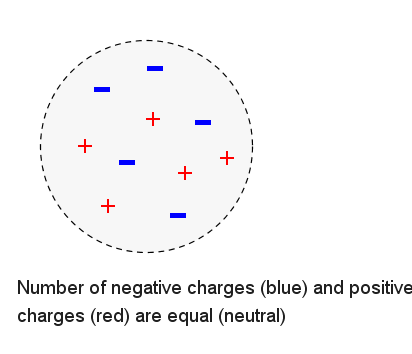An Electrically Neutral Object Is Given a Negative Charge
The charge in an electrically charged metal object is made up of conduction electrons moving randomly in the metals crystal lattice. Charge density can be either positive or negative since electric charge can be either positive or negative.
A positive charge and a negative charge held near each other are released.

. As they move the force on each particle. In these units 1 ampere A is a current created by 1 coulomb C passing per second. Neutrons in the nucleus.
As we know the system is the group of objects and its interaction with charges is similar to the conservation of energy and momentum But this conservation law is more intuitive because the net charge of an object depends on the number. In an electrically neutral atom the number of protons in the nucleus is equal to the number of. Because electrons carry a negative charge and a coulomb refers to a positive charge some definitions are needed.
The net quantity of electric charge the amount of positive charge minus the amount of negative charge in the universe is always conserved. Electrons that surround the nucleus. Given by the dipole moment perpendicular to.
Because the electron has such a small charge the coulomb abbreviated with a capital C is often used as unit of charge for 624 10 18 electrons.
Physics Tutorial Charge Interactions

Electricity And Electromagnetism Static Electricity Flashcards Quizlet
Comments
Post a Comment